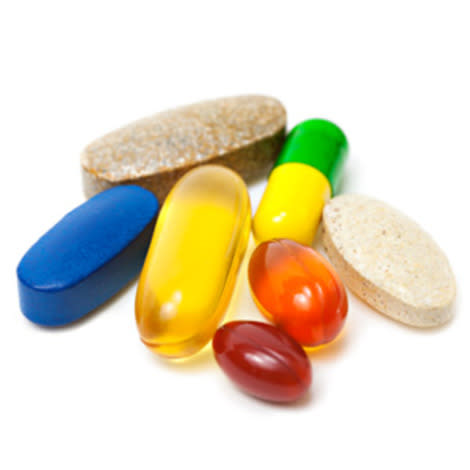Staying Healthy: When Less is More

by Robin Miller, for Sharecare
Many times in life we get the idea that if a little bit of something is good, then more is certainly better. That, however, is not always the case. Let's look at a couple of examples having to do with how we take care of ourselves.
Vitamins
Vitamins make many of us feel better. They can be good for us. But taking too much can have negative repercussions.
Many people take vitamin A, for example, because it can be good for the skin. However, if you take more than 5,000 IUs a day it can be toxic to the liver and cause serious health problems.
Vitamin D helps with bone density and can also boost heart health and the immune system. It's generally safe in a dose of 1,000 IUs daily. Take more than that and it can be toxic to the liver and cause dizziness and all sorts of problems.
Expert Q&A: What are signs of vitamin D toxicity?
Vitamin E can cause excessive bleeding if taken in high doses. Vitamin K in large doses doesn't generally cause problems in adults, but it will interfere with Coumadin, a common blood thinner.
The bottom line: Make sure to check with your doctor before taking high doses of any vitamin.
Scans and x-rays
Now that we have sophisticated scanners many people have chosen to have their whole bodies scanned. It sounds like it might be a good thing to do. But these kinds of scans sometimes find abnormalities that people have from birth that will not cause any real health problems. But because they showed up on a scan, the person may have more tests done and feel anxious about a problem that didn't warrant more investigation in the first place. We end up chasing technology with technology.
Before you ask for a scan or test it is important to think it through. Tests sometimes show a problem even when it isn't a very serious problem. For example: MRI studies were performed on 98 people without back pain. Only 36 percent had a normal MRI. Half had a bulging disc, 27 percent had a protrusion and 38 percent had abnormalities of more than one disc.
Radiation is Serious Business
Radiation exposure over a lifetime adds up. That is why you need to once again think the procedures through and find out how necessary they are for your health and healing.
If you decide you want to have a heart scan to check for calcium in your coronary arteries, consider that the radiation exposure is relatively high. If you decide to have a virtual colonoscopy (a detailed CT scan), you will again be exposed to a high dose of radiation. Remember: radiation is cumulative.
Expert Q&A: Can radiation from x-rays and CT scans cause cancer?
The same advice applies to your children. Think hard before they have multiple radiologic procedures. A recent study has found that children who underwent multiple CT scans have an increased risk of developing leukemia and brain cancer when compared to children who had not been scanned.
Procedures
Colonoscopy is a procedure that most of us need only every ten years. There are many people who worry when they have a little diarrhea or transient lower abdominal pain and think that they need a colonoscopy before it is due to be repeated. They probably don't need it. On the risk side, during colonoscopy the colon can be perforated and there may be a problem with the anesthesia. A smart patient weighs the risks and complications of every procedure against the benefits. Ask your doctor if you have any concerns, of course. There may be a more moderate way to deal with your issues rather than getting a risk-carrying procedure that you don't really need.
My point: Moderation in all things--including your healthcare--is probably the best rule to live by.
Dr. Robin Miller, Sharecare Editorial Advisory Board Member, currently practices Internal Medicine and serves as the medical director of Triune Integrative Medicine, a highly innovative Integrative Medicine clinic in Medford, Oregon. She is coauthor of The Smart Woman's Guide to Midlife and Beyond: A No-Nonsense Approach to Staying Healthy after 50.
Get more health tips from RealAge:
Measure how fast you're aging with the free RealAge Test!
Sharecare Fitness Center: Discover fun, easy ways to get fit this summer!
7 anti-aging foods all women should eat
Sharecare MakeAChange: Share your favorite recipe for a chance to win $6,000!
Stop Smoking Guide: How one RealAger quit and lost 80+ pounds at age 58
